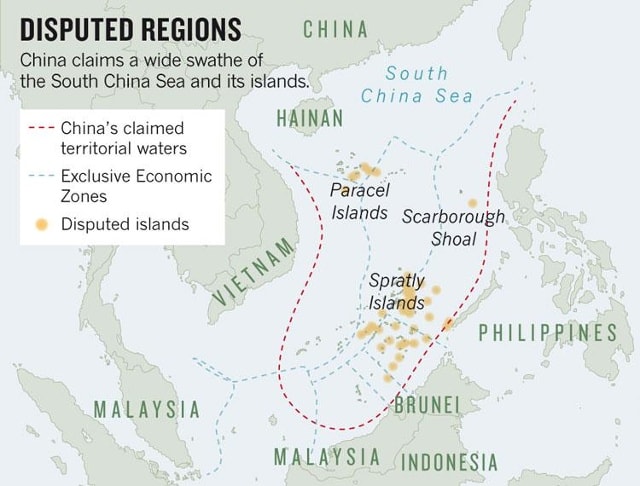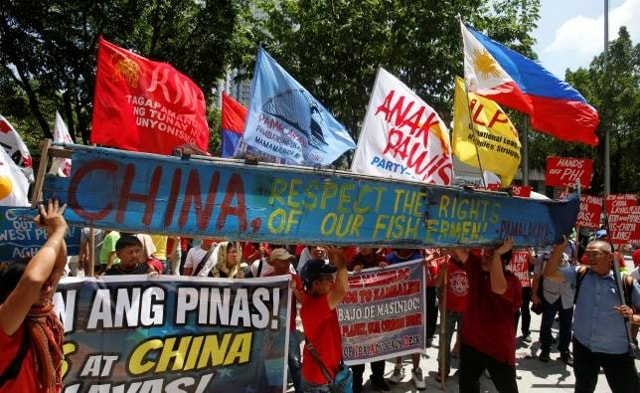The US wants all parties to avoid provocative actions after the PCA ruling.
(Baonghean.vn) - On July 12, after the Permanent Court of Arbitration (PCA) in The Hague (Netherlands) issued its ruling on the Philippines' lawsuit against China regarding disputes in the East Sea, the US State Department issued a statement affirming that the PCA's ruling is "an important contribution to the common goal of a peaceful solution" to disputes in the East Sea.
 |
| China's absurd nine-dash line, which appeared on the country's map in 1947, was rejected by the Permanent Court of Arbitration (PCA). Photo: Washington Post |
In the statement, US State Department spokesman John Kirby expressed "hope and desire" that all parties will comply with their obligations under the above legally binding ruling on the East Sea.
Washington also urged "all claimants to avoid provocative statements or actions" following the PCA's ruling.
The US State Department spokesman also said that the PCA's decision serves as a new opportunity to renew efforts to resolve maritime disputes peacefully. The US emphasized that it will continue to study the PCA's ruling.
The ruling could lead to greater disagreement between the two powers, the US and China.
Washington remains the leading international voice demanding that Beijing respect the court's ruling, and the South China Sea dispute has become a key test of America's ability to maintain its leading role in Asian maritime security amid China's growing power.
Meanwhile, Beijing refused to participate in the PCA's ruling process, instead launching a global propaganda campaign to attract countries to its side.
Last week, in a phone call with his counterpart John Kerry, Foreign Minister Wang Yi described the ruling process as a “comedy.” The Chinese Foreign Ministry said it would be “illusionary” to think that the country would “bow down” to diplomatic pressure to accept the ruling.
According to the PCA's ruling released earlier the same day, China's claim of "historic rights" over waters within the "nine-dash line" is contrary to the 1982 United Nations Convention on the Law of the Sea (UNCLOS).
 |
| Anti-China protest outside the Chinese Consulate in Makati City, Philippines on July 12. Photo: Reuters. |
China has no "historic title" to the waters in the East Sea and no legal basis to make claims of "historic rights" to resources within the "nine-dash line".
According to the PCA, none of the Spratly Islands gives China the right to an exclusive economic zone. China has no authority over an exclusive economic zone within 200 nautical miles of Mischief Reef or Second Thomas Shoal.
The PCA also affirmed that the Itu Aba feature in the Spratly Islands is a “rock” and therefore has no exclusive economic zone. The PCA said that Beijing has caused long-term and irreparable damage to the coral ecosystem in the Spratly Islands.
The PCA ruling also stressed that China had interfered with the Philippines' traditional fishing rights at Scarborough Shoal in the South China Sea.
According to the PCA, China's actions are aggravating disputes with the Philippines while the parties are trying to resolve the problem.
What happens next will depend on how China and other affected countries, including the Philippines, the United States and Vietnam, respond.
Lan Ha
(According to Washington Post)
| RELATED NEWS |
|---|
